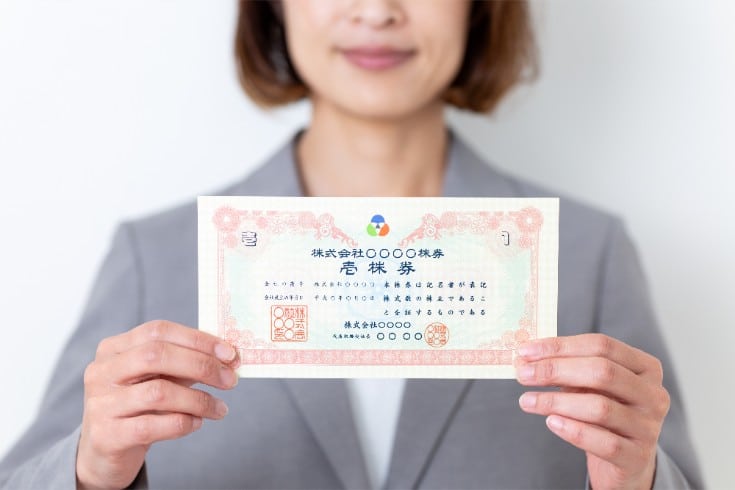Dispute Actions in Japanese Labor Law: Legal Legitimacy and Corporate Response Strategies

In corporate management, the relationship with labor unions is an unavoidable and critical issue. Particularly, the “dispute actions” that labor unions may choose when collective bargaining breaks down can have a serious impact on the normal operation of a business. While Japanese law guarantees dispute actions as a right of workers, this guarantee is not unconditional. Depending on whether a dispute action is legally “justifiable,” the countermeasures a company can take and the legal responsibilities that labor unions and their members may bear differ fundamentally. Therefore, accurately understanding the boundaries of this “justifiability” is an essential part of risk management for business executives and legal professionals operating in Japan.
When a dispute action occurs, it is not merely a labor issue but can become a legal crisis affecting the survival of a company. For example, if a strike halts production, a company may suffer not only direct economic losses but also potentially lose the trust of its business partners. However, if the dispute action lacks legal justification, the company may be able to claim damages against the labor union or the participating employees. Conversely, if a company responds inappropriately to a justifiable dispute action, it could be held legally responsible for unfair labor practices. This article will organize the legal framework for dispute actions under Japanese labor law, focusing on the criteria for determining their “justifiability,” the legal liabilities when justifiability is lacking, and the specific countermeasures that companies can take, all from a specialized perspective and including case law examples.
The Legal Foundation of Dispute Actions Under Japanese Law
In the Japanese legal system, the right to engage in dispute actions is built upon a strong legal foundation. This foundation is rooted in Article 28 of the Japanese Constitution, which guarantees workers the “right to organize,” the “right to bargain collectively,” and the “right to act collectively” . It is this “right to act collectively” that provides the constitutional basis for the right to engage in dispute actions, such as strikes .
To concretize these constitutional guarantees, the Japanese Labor Union Law provides robust legal protection for dispute actions. This protection is primarily composed of two types of immunity: criminal immunity and civil immunity .
Firstly, there is criminal immunity. Article 1, Paragraph 2 of the Japanese Labor Union Law stipulates that legitimate actions by labor unions do not constitute crimes under Japanese criminal law . For example, while a strike may formally be considered an act of obstruction of business (such as the crime of obstruction of business by force), it will not be subject to criminal penalties as long as it is a legitimate dispute action .
Secondly, there is civil immunity. Article 8 of the Japanese Labor Union Law states that employers cannot claim compensation from labor unions or their members for damages incurred due to legitimate dispute actions . This means that even if a company suffers substantial lost profits due to a legitimate strike, it is legally impossible to transfer those losses to the labor union .
However, these strong legal protections are privileges conditional on the dispute actions being “legitimate.” The provisions of the Japanese Labor Union Law consistently require the actions to be “legitimate” for immunity to apply. This suggests that the right to dispute, guaranteed by the Constitution, is not unlimited but is subject to certain social and legal limitations . Therefore, the fact that a labor union has initiated a dispute action is not the end of the legal analysis but merely the beginning. The most crucial task for companies is to objectively and calmly analyze whether the dispute action meets the legal requirements of “legitimacy.” The outcome of this analysis will determine the company’s legal standing, possible countermeasures, and ultimately the direction of dispute resolution.
The Four Criteria for Determining the Legitimacy of Dispute Actions Under Japanese Law
In assessing whether a dispute action is legitimate, Japanese courts do not rely on a single standard but instead consider a multitude of factors comprehensively. This framework for judgment, established through a series of precedents, primarily consists of four criteria: “subject,” “objective,” “procedure,” and “means/manner.” When companies in Japan face dispute actions by labor unions, it is necessary to examine the legitimacy of these actions from various angles in light of these criteria.
Legitimacy of the Acting Party
The first requirement for the legitimacy of a dispute action is that the acting party must be appropriate. Since the right to dispute is a right to make collective bargaining substantively equal, the dispute action must be organized by a labor union or a group of workers equivalent to it, which can be a party to collective bargaining.
Therefore, a strike carried out unilaterally by some union members without the official decision of the labor union, known as a “wildcat strike,” lacks the legitimacy of the acting party and is deemed illegal. In Japanese case law, wildcat strikes conducted by a part of the union members, ignoring the will of the entire union, are not considered legitimate. Even if the labor union’s executive body endorses the strike after the fact, there is a precedent that an act once evaluated as illegal does not retroactively become legal (Fukuoka District Court Kokura Branch, May 16, 1950 (1950)).
Legitimacy of the Objective
Secondly, the objective of the dispute action must be legitimate. The right to dispute is a right guaranteed for the purpose of improving the economic status of workers. Therefore, the objective of the dispute action must be related to matters that can be resolved through collective bargaining with the employer, such as wages, working hours, and other working conditions.
From this perspective, strikes with purely political objectives, known as “political strikes,” are generally not considered legitimate. This is because demands such as opposition to a specific bill or changes in government policy cannot be achieved by the efforts of a single employer alone. The Supreme Court of Japan clearly stated in the Mitsubishi Heavy Industries Nagasaki Shipyard case (judgment on September 25, 1992) that dispute actions for political purposes not directly related to the demand for improvement of economic status against an employer are outside the scope of protection under Article 28 of the Japanese Constitution.
Similarly, “sympathy strikes” conducted to support labor disputes at other companies tend to be deemed illegitimate if the employer of the striking workers cannot influence the resolution of the dispute.
Procedural Legitimacy
Thirdly, it is required that the procedures leading up to a dispute action are appropriate. Dispute actions are positioned as a last resort in labor-management negotiations, and it is a prerequisite that sincere discussions are first exhausted through collective bargaining. If a party unilaterally engages in a dispute action while there is still room for negotiation, the legitimacy of such an action may be questioned.
Furthermore, strikes carried out without notice, catching employers off guard, can be deemed illegal for causing unforeseen and excessive damage, violating the principle of good faith. In one case, the court denied the legitimacy of a strike where the initial notice time was moved up by 12 hours, and the start of the strike was announced just five minutes prior.
In addition, labor unions must comply with their internal rules and the procedures set forth by the Japanese Labor Union Act. Specifically, Article 5, Paragraph 2, Item 8 of the Japanese Labor Union Act stipulates that the initiation of a solidarity strike (strike) requires a majority decision by a direct secret ballot of the union members. Strikes lacking this procedure are not recognized for their procedural legitimacy.
Moreover, the Japanese Labor Relations Adjustment Act mandates that for ‘public interest businesses’ such as transportation, medical care, and the supply of electricity, gas, and water, notice must be given to the Labor Commission and the Minister of Health, Labour and Welfare (or the prefectural governor) at least ten days before the intended day of the dispute action. Dispute actions that violate this notice obligation are also illegal.
Legitimacy of Means and Manner Under Japanese Law
Finally, it is essential that the specific means and manner of dispute actions fall within a range that is considered appropriate by societal norms. No matter the purpose or reason, the use of violence is never justified. Article 1, Paragraph 2 of the Japanese Labor Union Act clearly stipulates this point.
Regarding the specific manner of actions, the following points have been issues in legal precedents:
Picketing is an act of attempting to prevent other employees or business partners who wish to work from entering the workplace, in order to ensure the effectiveness of a strike. However, the manner of picketing must remain within the bounds of peaceful persuasion. The use of force, such as surrounding individuals in large numbers and hurling abuse, or creating physical barriers (like a scrum) to completely block access, is deemed to exceed the bounds of legitimacy.
Workplace occupation involves strike participants remaining in the workplace and excluding the employer’s facility management. Legal precedents have not recognized the legitimacy of “total and exclusive” workplace occupations that completely eliminate the employer’s control over their facilities, as they infringe upon the employer’s property rights. On the other hand, there may be room for legitimacy if the occupation is merely a sit-in in part of the workplace, without physically hindering other employees’ work or business operations.
Work slowdowns (sabotage) are acts of intentionally reducing work efficiency. They are recognized as part of dispute actions due to the incomplete provision of labor. However, acts that go beyond merely reducing efficiency and actively damage the company’s facilities or products, or threaten the safety of operations, exceed the bounds of legitimate work slowdowns and are deemed illegal. For example, in a case where a train driver, claiming to be engaging in a safety struggle, intentionally reduced the speed of operation to an extreme, creating a risk to the safe operation of the train, the court denied the legitimacy of the dispute action (Tokyo District Court, July 16, 2014 judgment).
Comparing Legitimate and Illegitimate Dispute Actions Under Japanese Law
Based on the four criteria detailed earlier, we can compare the typical personalityistics of legitimate and illegitimate dispute actions as organized in the table below. This table serves as a reference when assessing specific situations within the legal framework.
| Criterion | Examples of Actions Deemed Legitimate | Examples of Actions Deemed Illegitimate |
| Subject | Actions implemented by a labor union through official organizational decisions (such as member voting). | Actions taken unilaterally by some union members without going through the union’s decision-making process (wildcat strikes). |
| Purpose | Aimed at maintaining or improving labor conditions, such as wage increases or reduction of working hours. | Purely political objectives, such as opposing government policies (political strikes). |
| Procedure | Conducted as a last resort after sincerely engaging in collective bargaining, with appropriate advance notice given. | Starting abruptly without any collective bargaining, or only engaging in it formally. Surprise strikes without notice. |
| Means & Manner | Peaceful withholding of labor (strikes). Picketing within the bounds of peaceful persuasion through speech. | Involving violence, threats, or property damage. Picketing that physically blocks people’s access completely. Total and exclusive occupation of the workplace. |
Legal Liability for Unjustifiable Dispute Actions Under Japanese Law
If a dispute action fails to meet any of the aforementioned four criteria and is deemed “unjustifiable,” the strong protections of criminal and civil immunity provided by the Japanese Labor Union Law are lost. As a result, labor unions and the individual union members who participated may be subject to severe legal liabilities under Japanese Civil and Criminal Law.
Civil Liability: Claims for Damages
Dispute actions lacking justification constitute a tort under Japanese Civil Law (Article 709 of the Japanese Civil Code). This allows companies to claim compensation from labor unions for damages suffered due to the dispute action. Possible damages include lost profits due to production stoppage, costs for equipment repairs, and expenses incurred to restore customer trust.
More importantly, the liability for damages does not stop with the labor union as an entity. Japanese case law recognizes that union executives who planned or directed the illegal dispute action, as well as individual union members who actively participated, are jointly and severally liable for damages (joint tortfeasance, Article 719 of the Japanese Civil Code). In the Shosen Book Company case (Tokyo District Court, May 6, 1992), it was affirmed that the dispute action, while being an act of the group, also has an aspect as the act of the individual union members, thus affirming the individual tort liability of the union members. The possibility of individual union members bearing direct compensation obligations has significant implications in deterring participation in illegal dispute actions.
Criminal Liability
Without the protection of criminal immunity, individual actions in an unjustifiable dispute action can be subject to punishment as crimes under Japanese Criminal Law. For example, if business operations are obstructed by force, it could constitute the crime of forcible obstruction of business; illegal entry into a company’s facilities could lead to charges of trespassing; and if violence is inflicted on officers or other employees, it could result in charges of assault or bodily injury. These criminal acts may be investigated by the police and could lead to prosecution by public prosecutors.
Disciplinary Actions Against Employees
Refusing to provide labor without a legitimate reason constitutes a breach of contractual obligations under an employment contract. Participation in an unjustifiable dispute action is precisely such a breach and is considered an act that disrupts the order of the company. Therefore, companies can impose disciplinary actions on employees who participated in illegal dispute actions in accordance with the provisions of their work rules. The severity of the punishment can range from reprimands, pay cuts, and suspensions to the most severe form of disciplinary dismissal, depending on the maliciousness of the act and the extent of damage caused to the company. The Supreme Court of Japan has consistently indicated that disciplinary actions can be taken against individual union members who disrupt management order through illegal disputes.
Dispute Actions and Wages Under Japanese Law
How to handle employee wages during a period of dispute actions is a direct and significant issue for companies. The response varies depending on the nature of the dispute action.
The “No Work, No Pay” Principle
For periods when employees participate in a strike and completely refuse to provide labor, companies are not obligated to pay wages. This is known as the “No Work, No Pay” principle, a principle derived from the basic nature of the labor contract, which states that wages are the consideration for labor provided. This is not a punitive wage cut but simply the contractual consequence of not paying for labor that was not provided.
Furthermore, paying wages to employees participating in a legitimate strike can be seen as aiding the finances of the labor union, which poses a risk of being considered an unfair labor practice called “dominance intervention,” prohibited under Article 7 of the Japanese Labor Union Act. Therefore, not paying wages for the hours not worked during a strike period is not only legally justified but can be considered a mandatory response.
Wage Reductions for Slowdowns or Partial Strikes
The issue becomes more complex in cases of slowdowns (sabotage) or partial strikes, where labor is provided, albeit incompletely. In these cases, companies can reduce wages in proportion to the amount of labor not provided, but the calculation must be objective and reasonable.
Simply cutting wages significantly for the mere reason of participating in a slowdown is not permissible; the reduction must be commensurate with the extent of the non-provided labor. In past court cases, such as a slowdown by taxi drivers, a method of calculating wage cuts based on the minimum fare income of employees who did not participate in the slowdown, and then further reducing that amount by a certain percentage, was deemed reasonable (Obihiro District Court, November 29, 1982). Additionally, in cases where employees are on a monthly salary with basic pay and various allowances defined, it is necessary to individually determine which parts are consideration for labor and which are not. The Supreme Court of Japan, in the Mitsubishi Heavy Industries Nagasaki Shipyard case (September 18, 1981), rejected a simplistic dichotomy that simply divides wages into parts for labor provided and not provided, indicating that the nature of each allowance should be considered when deciding whether to cut it.
Employer Countermeasures to Labor Disputes Under Japanese Law
Even when a labor union initiates a dispute, employers in Japan are not powerless. The Japanese legal system respects the managerial rights of employers and allows them to take certain countermeasures within a defined scope.
Continuation of Operations During a Dispute
Firstly, employers are not obligated to halt their business operations during a dispute. They possess the “freedom to operate” and are permitted to mobilize non-union members and managers who are not participating in the strike, or to hire new replacement workers to ensure the continuity of their business. Securing alternative personnel to mitigate the effects of a strike is part of the legitimate exercise of an employer’s rights.
Defensive Lockout (Workplace Closure)
The most powerful countermeasure available to employers is the lockout (workplace closure). This involves the employer actively refusing to accept labor from employees participating in the dispute and not allowing them to work.
However, Japanese courts impose strict constraints on the exercise of lockouts. Employers are not permitted to carry out lockouts with an aggressive purpose, that is, to weaken the labor union or to advance negotiations in their favor preemptively. A lockout is considered legitimate only when it is a “defensive” measure. Specifically, it is justified only when it is carried out as a necessary response to restore balance when the power dynamics between labor and management are significantly disrupted due to the workers’ dispute actions, and the employer is under unilateral and unfair pressure.
This criterion of “balance of power” was established in the Marushima Watergate Manufacturing Co. case (Supreme Court of Japan, April 25, 1975). It was concretely applied in the Anigawa Live Concrete Industry case (Supreme Court of Japan, April 18, 2006). In this case, the labor union repeatedly conducted short and unpredictable strikes, ending them immediately after the employer had to give up on the day’s orders. As a result, the employer was forced to close for the entire day despite minimal non-working hours, suffering the double blow of wage burden and loss of sales. The Supreme Court ruled that the impact of the union’s tactics on the employer was significantly greater compared to the non-working hours and recognized the employer’s lockout as a defensive measure to restore the balance of power.
When a lockout is deemed legitimate, the employer can be exempt from the obligation to pay wages to the affected employees during that period. Thus, the legitimacy of an employer’s lockout is closely related to the nature of the labor union’s dispute actions. The more excessively destructive and unfair the union’s actions are, the more justifiable the employer’s defensive countermeasures become.
Summary
Dispute actions under Japanese labor law are a fundamental right of workers guaranteed by the Constitution. However, the exercise of this right is not unlimited and is only afforded strong protection from criminal and civil liability through a strict legal filter of “legitimacy.” From a corporate management perspective, the presence or absence of this legitimacy becomes a critical juncture in determining the risks and rewards when a dispute arises. If a labor union’s dispute action lacks legitimacy in any aspect of its subject, purpose, procedure, or means and manner, it no longer constitutes a protected right but transforms into an illegal act against the company. As a result, the company can take decisive legal measures such as claims for damages, criminal complaints, and disciplinary action against participating employees. When faced with the critical situation of a dispute action, the first step towards the best resolution is to analyze the legitimacy of the action from a legal standpoint swiftly and accurately, without falling into emotional conflict, and to clearly understand one’s rights and the other party’s responsibilities.
Monolith Law Office has a wealth of experience in handling complex labor issues surrounding dispute actions, as discussed in this article, for numerous clients within Japan. Our firm is staffed with experts who are not only qualified as Japanese attorneys but also include English-speaking professionals with foreign legal qualifications, deeply versed in the unique challenges faced by international companies. From the stages of collective bargaining to post-dispute action responses and even litigation, we can provide strategic and practical legal support to protect our clients’ interests to the fullest extent. If you are facing issues related to Japanese labor law, please do not hesitate to consult with us.
Category: General Corporate





















